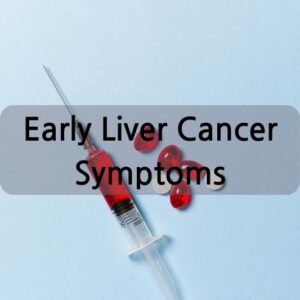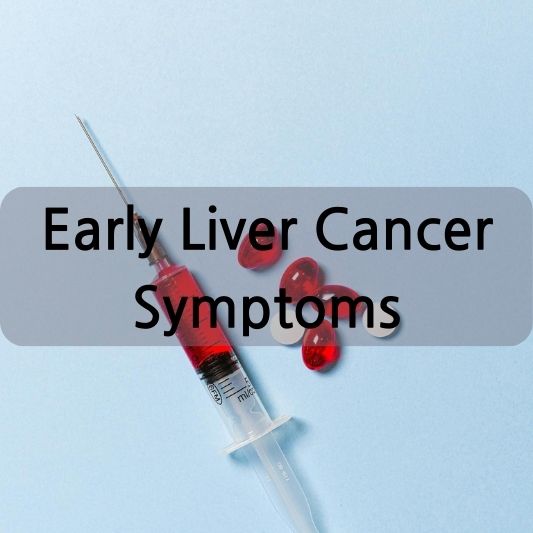Liver cancer, particularly in its early stages, often exhibits subtle symptoms that may go unnoticed. Understanding the signs and symptoms of early liver cancer is crucial for timely detection and effective treatment. In this article, we’ll delve into the intricacies of early liver cancer, from its definition to the various diagnostic methods and treatment options available.

Understanding the Liver
The liver, a vital organ in the human body, performs numerous functions, including detoxification and nutrient processing. It is essential to comprehend the role of the liver and the common causes that can lead to the development of liver cancer.
Risk Factors for Early Liver Cancer
Certain factors increase the risk of developing early liver cancer. Chronic hepatitis infections, cirrhosis, family history, and conditions like obesity and diabetes play a significant role. Recognizing these risk factors is the first step towards prevention.
Signs and Symptoms
Early liver cancer symptoms are often elusive, but being aware of the warning signs is crucial. This section will provide an overview of symptoms, helping readers recognize potential indicators of liver cancer.
Diagnostic Methods
Timely and accurate diagnosis is key to managing early liver cancer effectively. Imaging tests, liver biopsy, and blood tests are among the diagnostic methods that healthcare professionals employ to confirm the presence of liver cancer.
Treatment Options
Upon diagnosis, various treatment options come into play. From surgical interventions to radiation and chemotherapy, understanding the available treatments is vital for patients and their families.
Lifestyle Changes for Prevention
Prevention is always better than cure. Adopting a healthy diet, engaging in regular exercise, and avoiding risky behaviors can significantly reduce the risk of developing liver cancer.
Coping with Early Liver Cancer
A cancer diagnosis can be emotionally challenging. This section explores the importance of emotional support and the role of support groups in helping individuals cope with the realities of early liver cancer.
Importance of Regular Check-ups
Regular health check-ups and screenings are essential for early detection. This section emphasizes the significance of proactive healthcare measures in identifying liver cancer at its nascent stage.
Medical Advancements in Liver Cancer Research Advancements in medical research have led to innovative treatment approaches. Targeted therapies and immunotherapy are promising avenues in the ongoing battle against liver cancer.
Real Stories: Surviving Early Liver Cancer
Real-life experiences of individuals who have successfully battled early liver cancer offer hope and inspiration. Their stories shed light on the challenges faced and the triumphs achieved.
Raising Awareness
Public health campaigns and educational initiatives play a crucial role in raising awareness about liver cancer. This section highlights the importance of community efforts in spreading knowledge and encouraging preventive measures.
Conclusion
In conclusion, early detection of liver cancer is a powerful tool in the fight against this silent threat. By understanding the symptoms, risk factors, and available treatments, individuals can take proactive steps towards their health.
FAQs
1. How common is early liver cancer?
Early liver cancer is relatively rare, but awareness is essential as it can be challenging to detect.
2. Can a healthy lifestyle prevent liver cancer?
Adopting a healthy lifestyle, including a balanced diet and regular exercise, can reduce the risk of developing liver cancer.
3. What are the emotional challenges of a liver cancer diagnosis?
A liver cancer diagnosis can be emotionally taxing; seeking support from friends, family, or support groups is crucial.
4. Are there alternative therapies for liver cancer treatment?
While traditional treatments are common, some individuals explore complementary therapies. Consult with healthcare professionals for guidance.
5. How often should one undergo liver health screenings?
The frequency of liver health screenings depends on individual risk factors. Regular check-ups with a healthcare provider can help determine the appropriate schedule.
Find out nutritional supplements to help your liver health on iHerb!
